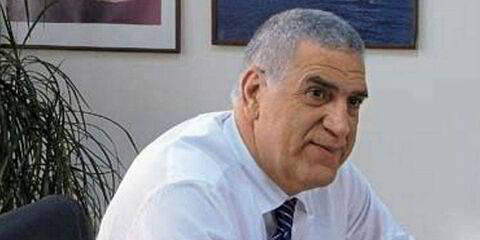To use Bob Dylan’s immortal line, “the times they are a-changin’” in Greek shipping as everywhere else.
Companies are listing on the stock exchange, owners are finding new methods of financing, more corporate structures are being put into place, a younger fleet of more sophisticated ships is taking to the sea and new areas of activity are being explored.
For almost a decade now, Greek companies have been going to the public markets, whether through regular initial public offerings (IPOs) or special acquisition vehicles (Spacs), or, more recently, through master limited partnerships (MLPs). There have been innovative financing tools and inventive schemes that have taken Greek owners into new pastures.
Additionally, ships have become larger and more sophisticated. Ten years ago, in 2004, Greek owners controlled 3,370 vessels totalling 180 million dwt. This year, they control 3,901 ships of close to 291 million dwt.
Three sectors most frequently cited as growth areas are LNG, containerships and offshore.
Data from Lloyd’s Register/Fairplay shows that Greek owners now control 183 gas carriers, of which 70 are newbuildings. No distinction is made between LNG and LPG, both growing sectors of interest for Greek owners, but some 75 LNG carriers are easily identified as belonging to the major players in this sector (see LNG stories, pages 78 and 79). In the LPG sector, Harry Vafias-led StealthGas has a fleet of 55, including 17 newbuildings.
The offshore space, despite the high barriers to entry, has attracted Greeks, most prominent among them George Economou, whose Ocean Rig now boasts a fleet of 11 ultra deepwater drilling units, two of them semi-submersible rigs, and nine ultra deepwater drillships, one of which is due to be delivered this year and two in 2015.
Another entrant to the offshore sector is Evangelos Pistiolis, who last year dived in at the deep end with a $1.44bn order for up to six jack-up rigs.
On the offshore services side, Nautilus Shareholdings Inc came into the frame with a current fleet of two platform supply vessels (PSVs) and four oil spill response vessels (OSRVs).
Containerships also offered a sector into which Greek owners plunged enthusiastically, although always as tonnage providers and never as operators. As of March this year, pure boxships controlled by Greeks totalled 339, of which 61 are newbuildings.
Current sale-and-purchase (S&P) deals may slightly alter the figures but it is easy to identify some 150 of these as belonging to the five listed Greek containership companies, as well as new player Navios, which added five 6,800-teu vessels to its fleet last December and is hinting at more.
The two leading players, Costamare and Danaos, list fleets of 68 and 59 vessels, respectively, but have many years of presence in the sector, as does the much smaller Goldenport Holdings. Newer entrants are Michael Bodouroglou’s Box Ships Inc and Diana Containerships. But on the private side, in addition to long-time operator Technomar, which fields a fleet of 39 units, a number of new entrants came into the space at a time when they felt the only way to go was up.
The Embiricos family, Capital Shipmanagement, Eastern Mediterranean and Thenamaris, to name but a few very recognisable players, all dipped into the market, while a joint venture between Petros Pappas-led Oceanbulk and US private-equity giant Oaktree swelled its boxship orderbook to 10.
An area of change but certainly not of growth, is passenger shipping. Despite the clear need for good domestic sea connections in a country that has a 14,000-kilometre (8,700-mile) coastline and almost 230 inhabited islands, just 96 passengerships remain under Greek ownership today. The companies have suffered major financial setbacks in recent years as traffic reduced due to the country’s economic woes and, at the same time, bunker prices pushed up operating costs.
Now, one more innovation is being hatched and that is the use of LNG as a fuel for local passengerships and ferries.
A meeting held at the shipping ministry in April brought together government, financial, technical and company representatives in a bid to hammer out a basis for this to be put into effect.
“We want to be pioneers in this matter,” said shipping minister Miltiadis Varvitsiotis.
And perhaps therein lies the key to what keeps Greek shipping on the move: the pioneering spirit that took it from sail to steam, from wood to iron, from family-funded start-ups to multibillion-dollar newbuilding investments.



